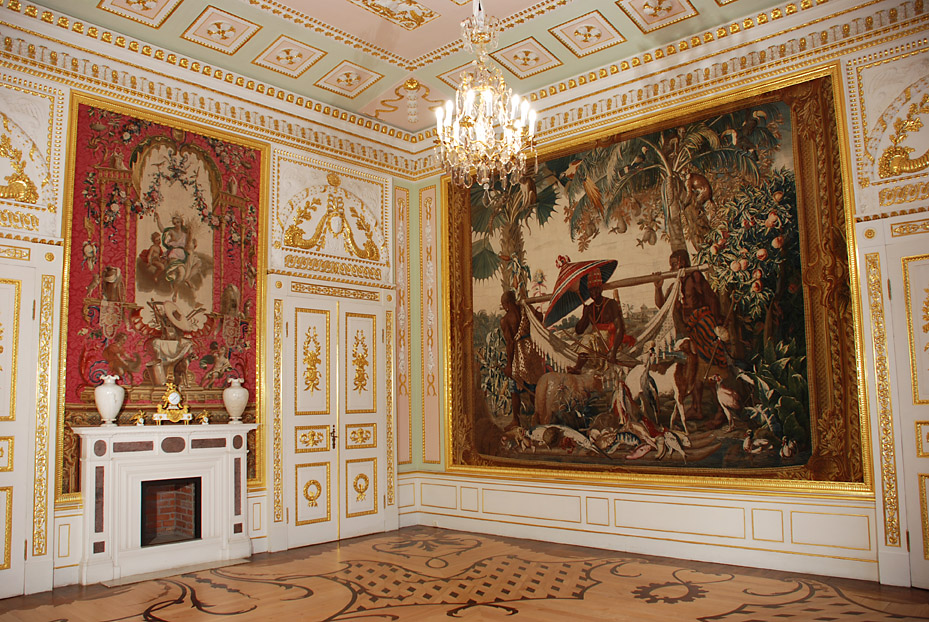Paul I’s Upper Throne Room

Gatchina Palace had four throne rooms in the reign of Paul I. The most sumptuous in design was the Upper Throne Room. In designing this extraordinary interior, the architect Vincenzo Brenna displayed exceptional taste and imagination.
The rare tapestries in gilt frames were given to Pavel Petrovich and Maria Feodorvna by Louis XVI of France in 1782. The tapestries The Zebra and The Two Servants Carrying the Chief come from the New Indias series and were woven by Jacob Neilson’s workshop based on cartoons by Francois Desportes at the Gobelins Royal Manufactory.
Above the mantelpiece is the Gobelins tapestry Ceres from the Curtains of Gods series, showing the Roman goddess of the Earth. The tapestry was woven in the 1770s to the designs of Claude Audran.
Executed by the court master Christian Meyer, the carved throne chair of gilt wood was modeled on the Empress Anna Ioannovna’s silver throne, now in the State Hermitage.

Gatchina Palace had four throne rooms in the reign of Paul I. The most sumptuous in design was the Upper Throne Room. In designing this extraordinary interior, the architect Vincenzo Brenna displayed exceptional taste and imagination.
The rare tapestries in gilt frames were given to Pavel Petrovich and Maria Feodorvna by Louis XVI of France in 1782. The tapestries The Zebra and The Two Servants Carrying the Chief come from the New Indias series and were woven by Jacob Neilson’s workshop based on cartoons by Francois Desportes at the Gobelins Royal Manufactory.
Above the mantelpiece is the Gobelins tapestry Ceres from the Curtains of Gods series, showing the Roman goddess of the Earth. The tapestry was woven in the 1770s to the designs of Claude Audran.
Executed by the court master Christian Meyer, the carved throne chair of gilt wood was modeled on the Empress Anna Ioannovna’s silver throne, now in the State Hermitage.
